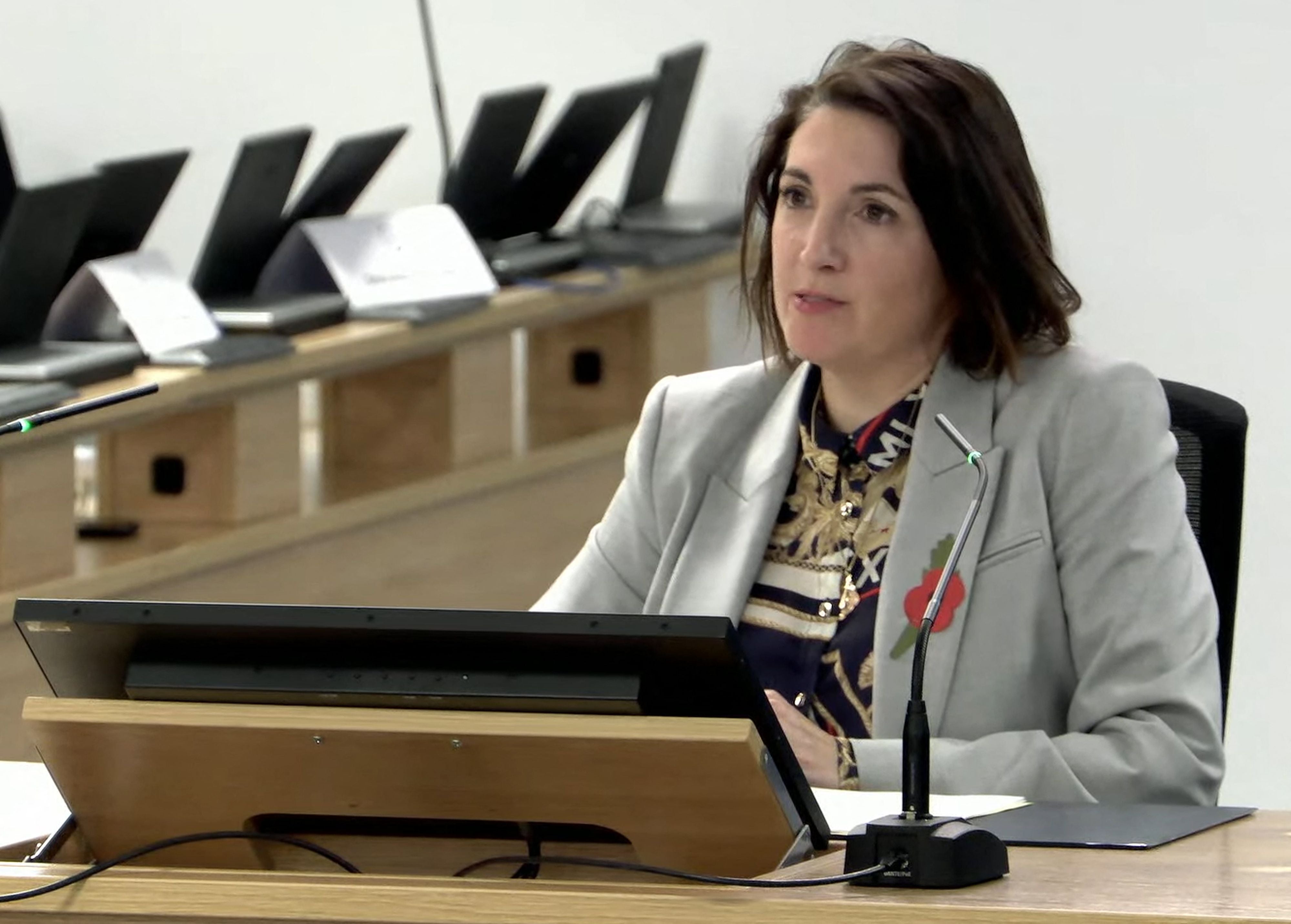Sorry not sorry: When will senior women stop writing emails like this?
Former deputy cabinet secretary Helen MacNamara gave evidence to the Covid inquiry – including emails she wrote to senior officials to argue for extra PPE for women. She was right – so why did she apologise, asks Professor Lucy Easthope


Helen MacNamara’s emails, as revealed by the Covid inquiry, provoked a visceral reaction in me this week. In a screenshot of one of them, addressed to the then NHS England chief Simon Stevens to argue for PPE for women, the former deputy cabinet secretary apologises in the very first line, saying: “Just when you thought you were out of the woods on annoying emails from me...”
Despite making a strong, vital and coherent argument for better Covid protection, (because, she says, most PPE isn’t designed for female bodies, yet the majority of people in need of PPE at the time were women) she finishes with another self-deprecating aside: “I didn’t know who to annoy with this so chose you. But by all means tell me where to better direct my questioning.”
I recognised something so familiar in this behaviour: women who are more than qualified to advise their peers, subordinates or superiors framing their requests or responses in the form of apology. And we don’t just do it to men – but to each other. Emails filled with multiple sorries, deference, self deprecation, caveats such as, “I am probably wrong but...”, even a softening emoji to be sure of removing any remaining sting from the tail.
I work in emergency planning and response, a field that often prizes machismo. In the opening chapter of my memoir, When The Dust Settles, I write about being judged from the minute I arrive at the scene of a tragedy – having to put up with comments on my appearance; the slow “up and down” look. The eye roll as soon as I open my mouth. Working 10 times harder to prove that I have the right to be there.
We are all Helen MacNamara...
Full of apologies… full of deference… full of self deprecation and emojis so they don’t hate us. When will women in some of the most senior positions in the land be able to stop writing emails like this? https://t.co/qsrxw1sl4w
— Professor Lucy Easthope (@LucyGoBag) November 1, 2023
As women, we make ourselves smaller, we use humour. We lower our voice and our tone. We do everything we can to not look hysterical. We contort. I am also a senior academic and it would be one of the first differences I would note in my students. The female students are conditioned to always begin – and end – with an apology. The male students don’t.
And it’s not just emails, but appears across all our behaviour – when I was profiled by the New Yorker, they observed me training a room full of emergency responders. They picked up quickly on my use of humour, self deprecation and gentle flattery to soften any semantic blows I was about to deliver.
I put my feelings about the emails out there on Twitter/X (I do that a lot, sorry) and some women made clear in response that they don’t do it – they have never done it. But many others shared their own stories of writing constantly in the form of an apology – “I do this all the time”; “I have just looked back at my emails after you wrote this and I start every one by apologising for existing”.
Women are sometimes penalised if they don’t do it. I’ve heard of people being reprimanded for being “aggressive” or “unhelpful” when they are forthright. Some have even been removed from projects. This also resonates. Often, the points that I am trying to send via email are difficult for my colleagues to hear – or at odds with the advice they have been given elsewhere. Some can perceive what I’m saying as a direct challenge to their command. I have subconsciously learned to couch the email gently to numb the message within.
But what I have also found is that cotton woolling emails doesn’t make that much difference, anyway. The gentler tone and the opening apologetic line (“sorry for bothering you”) still don’t protect us. Occasionally, I have been shown the correspondence written about me anyway – even if I’ve been soft or gentle, it is often met with rudeness. Ultimately, no emojis protected Helen MacNamara from being called the “c” word and neither did her knowledge, intuition or experience.
Five years ago, I was taken to one side by a colleague and an ally, a male detective, who said one of the most important things anyone has ever said to me. He told me I needed to “fully occupy the space that I had earned”. He told me to “never, ever send another email like that again”. And I haven’t.
I have passed that advice on since – not just to women, but to colleagues who are LGBT+, from ethnic minority backgrounds, battling chronic illnesses or caring for a dying relative. Take the apology out. Look for the points – usually at the beginning and the end – where you make yourself smaller. Come back to it after a cup of tea. Then start the email again. (Sorry for the extra work, but…).
Professor Lucy Easthope is a professor in practice of risk and hazard at the University of Durham and fellow in mass fatalities and pandemics at the centre for death and society, University of Bath. Her book When The Dust Settles: Stories of Love, Loss and Hope from an Expert in Disaster was released in March 2022






Join our commenting forum
Join thought-provoking conversations, follow other Independent readers and see their replies
Comments